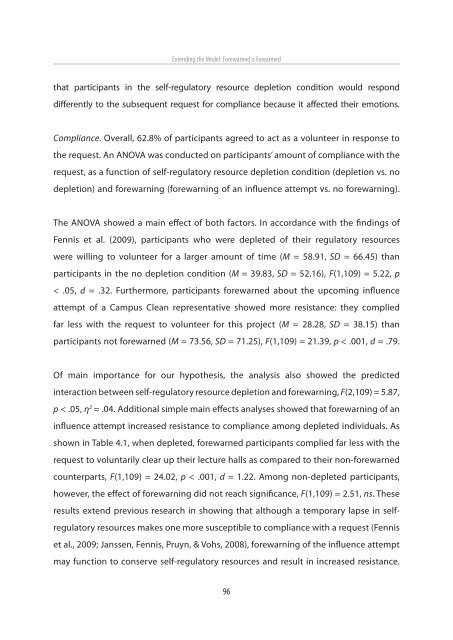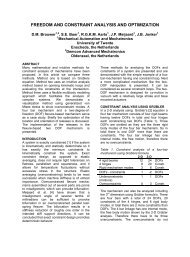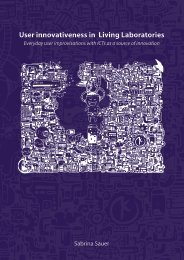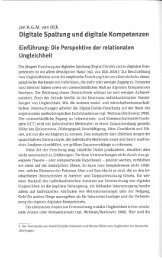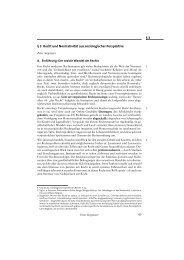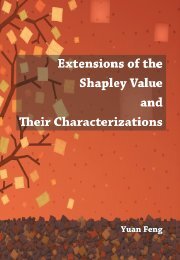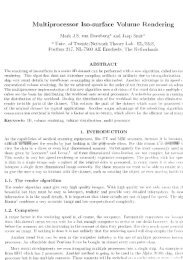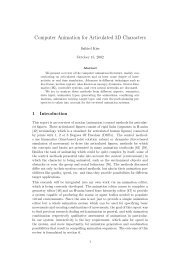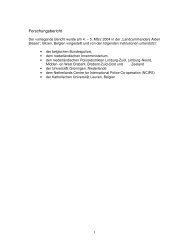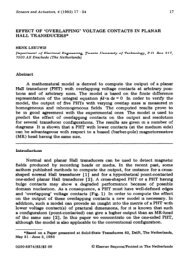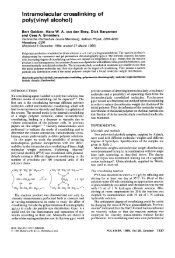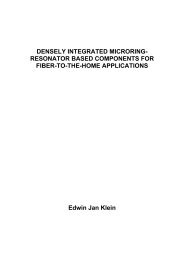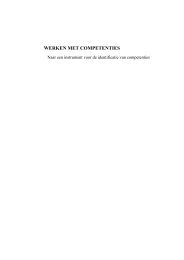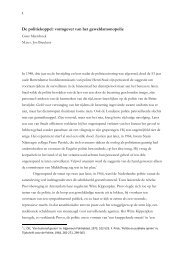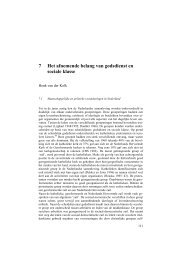Chapter 1 - Universiteit Twente
Chapter 1 - Universiteit Twente
Chapter 1 - Universiteit Twente
You also want an ePaper? Increase the reach of your titles
YUMPU automatically turns print PDFs into web optimized ePapers that Google loves.
Extending the Model: Forewarned is Forearmed<br />
that participants in the self-regulatory resource depletion condition would respond<br />
differently to the subsequent request for compliance because it affected their emotions.<br />
Compliance. Overall, 62.8% of participants agreed to act as a volunteer in response to<br />
the request. An ANOVA was conducted on participants’ amount of compliance with the<br />
request, as a function of self-regulatory resource depletion condition (depletion vs. no<br />
depletion) and forewarning (forewarning of an influence attempt vs. no forewarning).<br />
The ANOVA showed a main effect of both factors. In accordance with the findings of<br />
Fennis et al. (2009), participants who were depleted of their regulatory resources<br />
were willing to volunteer for a larger amount of time (M = 58.91, SD = 66.45) than<br />
participants in the no depletion condition (M = 39.83, SD = 52.16), F(1,109) = 5.22, p<br />
< .05, d = .32. Furthermore, participants forewarned about the upcoming influence<br />
attempt of a Campus Clean representative showed more resistance: they complied<br />
far less with the request to volunteer for this project (M = 28.28, SD = 38.15) than<br />
participants not forewarned (M = 73.56, SD = 71.25), F(1,109) = 21.39, p < .001, d = .79.<br />
Of main importance for our hypothesis, the analysis also showed the predicted<br />
interaction between self-regulatory resource depletion and forewarning, F(2,109) = 5.87,<br />
p < .05, η2 = .04. Additional simple main effects analyses showed that forewarning of an<br />
influence attempt increased resistance to compliance among depleted individuals. As<br />
shown in Table 4.1, when depleted, forewarned participants complied far less with the<br />
request to voluntarily clear up their lecture halls as compared to their non-forewarned<br />
counterparts, F(1,109) = 24.02, p < .001, d = 1.22. Among non-depleted participants,<br />
however, the effect of forewarning did not reach significance, F(1,109) = 2.51, ns. These<br />
results extend previous research in showing that although a temporary lapse in selfregulatory<br />
resources makes one more susceptible to compliance with a request (Fennis<br />
et al., 2009; Janssen, Fennis, Pruyn, & Vohs, 2008), forewarning of the influence attempt<br />
may function to conserve self-regulatory resources and result in increased resistance.<br />
96


